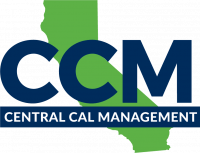
Simplifying The Pre-Approval Process for First-Time Home Buyers
Buying a home for the first time can be an exciting yet overwhelming experience. With the myriad of financial considerations and paperwork involved, many first-time buyers feel apprehensive about diving into the real estate market. However, arming yourself with knowledge is key to navigating this complex process. In this comprehensive article, we will guide you through everything you need to know as a first-time homebuyer, including securing a pre-approval letter. Central Cal Management is here to help first-time homebuyers simplify the process and provide support in obtaining a pre-approval letter. Whether you're just starting out or already in the midst of house hunting, prepare yourself for invaluable insights that will ensure you approach lenders like a seasoned professional.
The Importance of a Pre-Approval Letter for First-Time Home Buyers
- Boost your credibility: A pre-approval letter demonstrates to sellers that you are serious about buying a home and have the financial means to do so. It shows them that you have taken the necessary steps to secure financing, giving you an edge over other buyers who may not be as prepared.
- Determine your budget: Getting pre-approved for a mortgage allows you to understand how much house you can afford. Lenders will assess your income, credit score, and debt-to-income ratio to determine the maximum loan amount they are willing to offer. This helps narrow down your search, ensuring that you're only looking at homes within reach of your budget.
- Streamline the process: With a pre-approval letter in hand, you can expedite the home-buying process. Sellers will take your offers more seriously, potentially leading to quicker negotiations and closing times. Additionally, having already completed some of the paperwork involved in securing financing gives you a head start once you find the perfect property.
Getting pre-approved is an essential step for first-time home buyers. It provides assurance to sellers and simplifies your search by establishing your budget upfront.
Understanding the Pre-Approval Process
Before you start house hunting, it's essential to understand the pre-approval process. Here's a step-by-step guide to help you navigate through it smoothly:
- Gather your financial documents: To get started, gather all necessary financial documents such as bank statements, pay stubs, tax returns, and any other proof of income or assets.
- Research lenders and mortgage programs: Take time to research different lenders and mortgage programs available in your area. This will give you an idea of what options are out there and help you choose the right one for your needs.
- Complete a pre-approval application: Once you've found a lender that suits your requirements, complete their pre-approval application form carefully and accurately. Any discrepancies or missing information may delay the process.
- Provide supporting documentation: Along with your application form, be prepared to submit all required supporting documentation promptly. This typically includes proof of employment, income verification documents, W-2 forms from previous years, and bank statements.
- Allow time for processing: After submitting your application and supporting documents, allow some time for the lender to review them thoroughly. The processing period can vary depending on various factors but usually takes around 1-2 weeks.
Key Factors Considered
When getting pre-qualified for a mortgage, certain factors are taken into consideration by lenders. These factors help determine your eligibility and the amount you can borrow. Here are some key factors that lenders typically consider:
- Income: Lenders will assess your income to ensure you have enough funds to cover monthly mortgage payments. They will look at your gross annual income, employment history, and stability.
- Credit Score: Your credit score plays a significant role in pre-qualification. A higher credit score indicates better financial responsibility and makes it easier for you to get approved for a loan with favorable terms.
- Debt-to-Income Ratio: This ratio compares your total monthly debt payments (such as student loans or credit card bills) to your gross monthly income. Lenders prefer borrowers with lower ratios as it shows their ability to handle additional debt.
- Foreigners buying property may face additional requirements regarding proof of income, source of funds, and visa status.
By understanding these key factors considered during the pre-qualification process, you can be better prepared when applying for a mortgage and improve your chances of securing a loan approval letter successfully.
Tips for Preparing Your Finances for a Pre-Approval Letter
- Save for a down payment: Lenders typically prefer borrowers who can provide a down payment, as it demonstrates financial responsibility. Aim to save at least 20% of the home's purchase price, as this may also help you avoid private mortgage insurance (PMI).
- Maintain a stable employment history: Lenders look for stability when considering loan applicants. Avoid changing jobs frequently during the pre-approval process, as it can raise concerns about your ability to repay the loan.
- Avoid major purchases: Large purchases or taking on additional debt before seeking a pre-approval letter can negatively impact your debt-to-income ratio and your overall creditworthiness. Hold off on major purchases until after you have secured a loan.
- Consult with a mortgage professional: Working with a knowledgeable mortgage professional, such as Central Cal Management, can greatly assist you in the pre-approval process. They can help you understand the specific requirements, guide you on preparing your finances, and ensure you have all the necessary documents for a smooth application.
Remember that planning ahead is key when it comes to securing a pre-approval letter. By taking the time to organize your finances and address any potential red flags, you'll be better positioned to demonstrate to lenders that you are financially responsible and capable of repaying a mortgage.
How to Choose the Right Lender for Your First Home Purchase
Finding the right lender is a crucial step in securing your first home purchase. Here are some tips to help you make a confident and informed decision:
- Research, research, research: Take time to compare lenders before making a choice. Look into their reputation, customer reviews, and overall track record.
- Consider interest rates and fees: Calculate how much each lender charges in terms of interest rates and fees like origination or application costs. This will affect the total amount you pay over the life of your loan. Checkout our mortgage calculator to estimate cost.
- Evaluate customer service: A responsive and helpful lender can make all the difference during this complex process. Seek out lenders who provide excellent customer service through clear communication channels such as phone calls or email responses.
- Explore lending options: Different lenders offer various types of loans with different requirements that suit different lifestyles and budgets—conventional loans or government-backed loans could be worth considering based on your circumstances.
Understanding what each potential lender offers—and closely examining their cost structures—will put you in an advantageous position when choosing where to secure financing for your first home purchase!
Common Mistakes to Avoid
Seeking a pre-approval letter is an essential step in the home buying process, but many first-time buyers fall victim to common mistakes that can delay or even prevent them from securing this important document. To ensure you're on the right track, here are some pitfalls to avoid:
- Neglecting your credit score: Your credit score plays a crucial role in determining whether you get approved for a mortgage and what interest rate you'll receive. Before seeking pre-approval, check your credit report for any errors and take steps to improve your score if necessary.
- Inaccurate or incomplete documentation: Lenders require specific documents when evaluating loan applications. Failing to provide all the required paperwork accurately can lead to delays or rejections. Make sure you have up-to-date tax returns, bank statements, pay stubs, proof of assets, and any other required documentation ready before applying for pre-approval.
- Overestimating your budget: It's easy for excitement about becoming a homeowner to cloud judgment when it comes to estimating how much house you can afford. Be realistic about your financial situation and consider factors such as future maintenance costs and unexpected expenses so that you don't stretch yourself too thin financially after purchasing a property.
By avoiding these common mistakes, first-time homebuyers can increase their chances of obtaining a smooth pre-approval process and moving closer towards their dream of homeownership.
Maximizing Your Chances of Getting a Home Loan Pre-Approval
Here are some tips to help maximize your chances of getting pre-approved for a home loan:
- Improve your credit score: Lenders often consider credit scores when determining loan eligibility. Paying bills on time, minimizing debt, and regularly checking your credit report can help improve your credit score.
- Save for a down payment: Having enough money saved for a down payment can demonstrate financial responsibility to lenders. Aim to save at least 20% of the home's purchase price, as this may also allow you to avoid private mortgage insurance (PMI).
- Gather necessary documents: Lenders will require various documents during the pre-approval process, including proof of income, bank statements, tax returns, and identification. Organize these documents in advance to streamline the application procedure.
- Avoid major financial changes: When seeking pre-approval, it is best not to make significant changes that could impact your financial stability or increase debt levels. This includes opening new credit accounts or making large purchases prior to applying for a home loan.
By following these steps and presenting yourself as financially responsible and stable, you can increase your chances of obtaining a home loan pre-approval letter with ease.
Next Steps After Receiving a Pre-Approval Letter
Once you have received your pre-approval letter, it's time to move forward with confidence and start navigating the home buying process like a pro. Here are the next steps you should take:
- Start searching for properties: Armed with your pre-approval letter, you can now start looking for houses that fit your budget and preferences. Work closely with a real estate agent who understands your needs and can help guide you through this stage.
- Make an offer: Once you find a property that meets your requirements, it's time to make an offer. Your pre-approval gives sellers confidence in your ability to secure financing, making your offer more appealing. Your real estate agent will help negotiate terms and conditions on your behalf.
- Complete the mortgage application: After successfully negotiating an accepted offer, contact the lender behind your pre-approval letter to formally apply for a mortgage loan. You'll need to provide additional financial documentation at this stage.
- Get the property appraised & inspected: Once approved for a loan, arrange for an appraisal of the property by licensed professionals as per lenders' requirements. Additionally, consider hiring a qualified home inspector who will perform a thorough inspection and assess its condition before finalizing any purchase agreement.
Securing a pre-approval letter is a crucial step for first-time home buyers, establishing your credibility, determining your budget, and streamlining the process. By avoiding common mistakes and focusing on improving your credit score, saving for a down payment, and maintaining a stable financial profile, you can maximize your chances of getting pre-approved. With the letter in hand, you can confidently search for properties, know your price range, make offers, and proceed with the mortgage application process. Partnering with professionals like Central Cal Management to find a home provides invaluable support throughout your journey, helping you navigate the home buying process with confidence and turn your homeownership dreams into reality.










